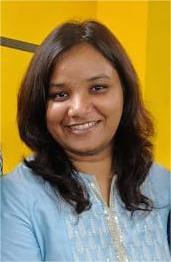100+ Arithmetic CAT Questions 2026 with Answers PDF Download
November 25, 2025
Overview: Regular practice of Arithmetic CAT questions 2026 is very important if you want to score well in the final exam. To help you out, we have provided the important formulas and key CAT arithmetic questions that will boost your preparation and give you an extra edge in the CAT 2026 exam
- This section forms a major part of the Quantitative Aptitude portion and checks your understanding of basic maths concepts like percentages, profit and loss, simple and compound interest, time and work, and ratio and proportion.
- These topics may seem simple, but they often appear in tricky ways in the exam. Practising them regularly helps you get faster, more accurate, and also makes it easier to identify and improve your weak areas.
This article offers an in-depth analysis of Arithmetic CAT questions, covering the CAT syllabus, weightage, strategies, and tips for mastering this crucial segment.
Read more: CAT Preparation Tips For Working Professionals
Download Important Topic WIse CAT Arithmetic Questions PDF links Below
| CAT Arithmetic Questions PDF | |
| Time, Speed & Distance Questions PDF | |
| Ratio, Proportion & Variations Questions PDF | |
| Simple Interest - Compound Interest Questions PDF | |
| Profit & Loss CAT Questions PDF |
Basics for Understanding Arithmetic CAT Questions 2026
Arithmetic forms a crucial part of the Quantitative Ability section in the CAT exam. Mastering arithmetic concepts is essential as CAT arithmetic questions often test your problem-solving speed and accuracy on topics like percentages, ratios, time, work, and more.
1) Number Systems
Number systems form the backbone of arithmetic. It includes the study of various types of numbers and their properties.
- Natural Numbers (N): Positive integers starting from 1 (1, 2, 3, ...).
- Whole Numbers (W): Natural numbers including zero (0, 1, 2, 3, ...).
- Integers (Z): All positive and negative whole numbers, including zero (..., -2, -1, 0, 1, 2, ...).
- Rational Numbers (Q): Numbers that can be expressed as a fraction of two integers where the denominator is not zero (e.g., 1/2, -3/4).
- Irrational Numbers: Numbers that cannot be expressed as a simple fraction (e.g., √2, π).
- Real Numbers (R): All rational and irrational numbers.
- Prime Numbers: Natural numbers greater than 1 with no positive divisors other than 1 and itself (e.g., 2, 3, 5, 7).
- Composite Numbers: Natural numbers greater than 1 that are not prime (e.g., 4, 6, 8, 9).
Check: Important Formulas for the CAT exam
Important List of Arithmetic CAT Questions for 2026
Here is the list of important easy-level arithmetic questions for CAT 2026:
Question 1: A shopkeeper gives a discount of 10% on a shirt marked at 500. What is the selling price?
- Rs. 450
- Rs. 460
- Rs. 470
- Rs. 480
Correct Answer: Rs. 470
Question 2: A person covers a distance of 120 km in 3 hours. What is the speed?
- 30 km/hr
- 40 km/hr
- 50 km/hr
- 60 km/hr
Correct Answer: 50 km/hr
Question 3: Find the average of the first 5 odd numbers
- 4
- 5
- 6
- 7
Correct Answer: 6
Go through the complete list of CAT quant formulas to enhance your quantitative aptitude section.
Read more: Practise with CAT DILR Questions
Question 4: A man spends 80% of his income. If his income is Rs. 40,000, what is his savings?
- Rs. 6,000
- Rs. 7,000
- Rs. 8,000
- Rs. 9,000
Correct Answer: Rs. 7,000
Question 5: A train travels 60 km in 1.5 hours. What is the speed in km/hr?
- 30
- 35
- 40
- 45
Correct Answer: 40
Read more about the detailed VARC syllabus for the CAT exam to strengthen your verbal preparation.
Use SuperGrads Free Resources 2026 Strategically
| CAT VARC Mock Test 2026 | |
| CAT DILR Mock test 2026 | |
| CAT QA Mock Test 2026 | |
| CAT VARC Prep Videos 2026 | |
| CAT DILR Prep Videos 2026 | |
| CAT QA Prep Videos 2026 | |
| CAT Syllabus 2026 | |
| CAT PYQs | |
| CAT VARC Questions |
Medium Level Arithmetic CAT Questions for 2026
Question 1: The ratio of two numbers is 4:5. If their sum is 180, find the numbers.
- 80 and 100
- 70 and 110
- 60 and 120
- 90 and 90
Correct Answer: 70 and 110
Question 2:A train is moving at 60 km/hr. How much time will it take to cover 450 meters?
- 27 sec
- 30 sec
- 25 sec
- 20 sec
Correct Answer: 30 sec
Question 3: If the cost price of an item is Rs. 250 and the profit is 20%, find the selling price.
- Rs. 280
- Rs. 300
- Rs. 320
- Rs. 350
Correct Answer: Rs. 320
Explore essential CAT geometry formulas to tackle geometry-based questions confidently.
Question 4: A and B together can do a work in 20 days. B alone can do it in 30 days. In how many days can A alone do the work?
- 60 days
- 50 days
- 40 days
- 30 days
Correct Answer: 50 days
Question 5: A man spends 30% on rent, 20% on food, and saves Rs. 20,000 which is 25% of his income. What is his total income?
- Rs. 80,000
- Rs. 70,000
- Rs. 60,000
- Rs. 90,000
Correct Answer: Rs. 90,000
Question 6: If the marked price of a product is Rs. 1,000 and two successive discounts of 20% and 10% are given, find the selling price.
- Rs. 700
- Rs. 800
- Rs. 720
- Rs. 750
Correct Answer: Rs. 800
Question 7: A car travels from A to B at 60 km/hr and returns at 40 km/hr. What is the average speed?
- 48 km/hr
- 50 km/hr
- 52 km/hr
- 54 km/hr
Correct Answer: 52 km/hr
Question 8: A sum of Rs. 10,000 is invested at 10% per annum for 2 years compounded annually. Find the amount
- Rs. 12,100
- Rs. 11,500
- Rs. 12,000
- Rs. 11,80
Correct Answer: Rs. 11,500
Question 9: If x% of y is equal to y% of x, what is the relation between x and y?
- x = y
- x > y
- x < y
- Cannot be determined
Correct Answer: x > y
Question 10: A man walks at 5 km/hr. How long will he take to cover 1.25 km?
- 10 min
- 12 min
- 15 min
- 18 min
Correct Answer: 12 min
Review the complete CAT geometry syllabus to understand the key topics covered in the exam.
Difficult Level Arithmetic CAT Questions for 2026
Question 1: A shopkeeper marks an item 50% above cost and gives a 20% discount. What is the profit percentage?
- 10%
- 15%
- 20%
- 25%
Correct Answer: 20%
Question 2: A person can row downstream at 12 km/hr and upstream at 8 km/hr. What is the speed of the current?
- 2 km/hr
- 4 km/hr
- 6 km/hr
- 3 km/hr
Correct Answer: 3 km/hr
Question 3: A, B and C can do a work in 10, 20, and 30 days respectively. If they all work together, how long will they take?
- 5.45 days
- 6 days
- 7.5 days
- 4.5 days
Correct Answer: 7.5 days
Question 4: A invests Rs. 5000 at 10% CI, B invests Rs. 5000 at 12% SI. After 2 years, who has more money and by how much?
- B has Rs. 150 more
- A has Rs. 150 more
- Equal
- B has Rs. 100 more
Correct Answer: A has Rs. 150 more
Question 5: A reduction of 20% in price enables a person to buy 25% more quantity. What is the ratio of old price to new price?
- 4:3
- 5:4
- 3:2
- 6:5
Correct Answer: 3:2
Question 6: A train crosses a pole in 15 seconds and a platform of 150 m in 25 seconds. Find the length of the train.
- 225 m
- 250 m
- 275 m
- 200 m
Correct Answer: 275 m
Question 7: If 3 men or 5 women can do a job in 12 days, in how many days can 6 men and 5 women do it?
- 4 days
- 5 days
- 6 days
- 3 days
Correct Answer: 4 days
Question 8: A sum triples in 8 years at simple interest. In how many years will it become 5 times?
- 16 years
- 18 years
- 20 years
- 14 years
Correct Answer: 14 years
Question 9: Two pipes fill a tank in 20 and 30 mins respectively. A third pipe empties the tank in 15 mins. In how much time will all 3 working together fill the tank?
- 60 mins
- 40 mins
- 30 mins
- 50 mins
Correct Answer: 40 mins
Question 10: A man travels 1/3 of the distance at 10 km/hr, next 1/3 at 20 km/hr, and last 1/3 at 30 km/hr. What is the average speed?
- 16.36 km/hr
- 20 km/hr
- 22 km/hr
- 18.5 km/h
Correct Answer: 22 km/hr
Check the detailed CAT DILR syllabus to strengthen your data interpretation and logical reasoning skills.
Must Solve Arithmetic CAT Questions for 2026
Question 1: If y is a negative number such that 2y2log35 = 5log23, then y equals:
- Log2 (1/5)
- Log2 (1/3)
- log2 (1/3)
- log2 (1/5)
Correct Answer: log2 (1/3)
Question 2: The number of real-valued solutions of the equation 2x+2−x=2−(x−2)22^x + 2^{-x} = 2 - (x - 2)^22x+2−x=2−(x−2)2
- 0
- 1
- Infinite
- 2
Correct Answer: 1
Question 3: A train traveled at one-third of its usual speed, and hence reached 30 minutes late. On the return journey, the train initially traveled at its usual speed for 5 minutes but then stopped for 4 minutes for an emergency. The percentage by which the train must now increase its usual speed so as to reach the destination at the scheduled time is nearest to:
- 58
- 67
- 50
- 61
Correct Answer: 50
Read more: CAT Exam Scores
Question 4: The mean of all 4-digit even natural numbers of the form ‘aabb’, where a>0a > 0a>0, is:
- 5050
- 4864
- 5544
- 4466
Correct Answer: 5544
Question 5: An alloy is prepared by mixing metals A, B, and C in the proportion 3:4:7 by volume. Weights of the same volume of metals A, B, and C are in the ratio 5:2:6. In 130 kg of the alloy, the weight of metal C is:
- 84
- 96
- 70
- 48
Correct Answer: 70
Question 6: If f (5 + x) = f (5 - x) for every real x, and f (x) = 0 has four distinct real roots, then the sum of these roots is
- 20
- 40
- 0
- 10
Correct Answer: 20
Read more: Negative Marking In CAT Exam
Important Arithmetic Formulas for CAT 2026
|
Topic |
Concept |
Formula / Explanation |
|
Number Systems |
Prime Numbers |
A number > 1 with no divisors other than 1 and itself |
|
LCM (Least Common Multiple) |
Smallest positive integer divisible by both a and b |
|
|
HCF (Highest Common Factor) |
Largest positive integer that divides both a and b without remainder |
|
|
Percentages |
Percentage Formula |
Percentage = (Part / Whole) * 100 |
|
Percentage Increase/Decrease |
[(New - Original) / Original] * 100 |
|
|
Profit and Loss |
Profit |
Profit = SP - CP |
|
Loss |
Loss = CP - SP |
|
|
Profit Percentage |
Profit % = (Profit / CP) * 100 |
|
|
Loss Percentage |
Loss % = (Loss / CP) * 100 |
|
|
Simple and Compound Interest |
Simple Interest (SI) |
SI = (P * R * T) / 100 |
|
Compound Interest (CI) |
CI = P * (1 + R / 100)^T - P |
|
|
Ratio and Proportion |
Ratio |
a : b = a / b |
|
Proportion |
If a / b = c / d, then ad = bc |
|
|
Time, Speed, and Distance |
Speed |
Speed = Distance / Time |
|
Distance |
Distance = Speed * Time |
|
|
Time |
Time = Distance / Speed |
|
|
Time and Work |
Work |
Work = Days * Work Rate |
|
Work Rate |
Work Rate = Work / Days |
|
|
Mixtures and Alligations |
Weighted Average |
(Σ Weight × Value) / (Σ Weights) |
|
Alligation Rule |
(Cheaper / Dearer) = (Dearer - Mean) / (Mean - Cheaper) |
|
|
Pipes and Cisterns |
Filling Time |
Part filled in 1 hour = 1 / x |
|
Emptying Time |
Part emptied in 1 hour = 1 / y |
|
|
Arithmetic Progression |
Nth Term of AP |
aₙ = a + (n - 1)d |
|
Sum of First n Terms |
Sₙ = n / 2 [2a + (n - 1)d] |
Also Check: CAT Exam Fees for Various Categories
Importance of Arithmetic CAT Questions 2026
CAT Arithmetic Questions is a core part of the CAT Quant section and comes from topics we’ve been studying since school days. Concepts like percentages, profit & loss, and ratios are easy to grasp and CAT previous year papers will help you understand how these concepts are applied in the actual exam.. That’s why it's often seen as low-hanging fruit in the exam.
These Arithmetic CAT questions are mostly formula-based and don’t need heavy calculations. If you’ve practised enough, you can solve them in a jiffy. It’s all about speed and smart thinking under pressure.
Conclusion
Practising a variety of Arithmetic CAT questions 2026 regularly can help to develop problem-solving skills. It will also improve your speed and accuracy. Try to solve as many as CAT arithmetic questions you can.
Get a comprehensive overview of the CAT 2026 syllabus to guide your preparation for all sections of the exam.
Frequently Asked Questions
Why is arithmetic important for the CAT exam?

What are the key topics in arithmetic for CAT preparation?

How can I improve my accuracy in arithmetic questions for CAT?

Are time and work problems commonly asked in CAT exams?

What strategies can help in solving percentage problems quickly?

What topics are included in Arithmetic CAT Questions?

How can I effectively prepare for Arithmetic questions for CAT?










SHARE